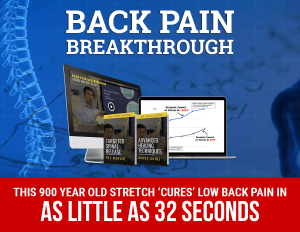Muscle soreness isn’t new to anyone who has ever lifted weights or worked out. But did you know that some simple pre and post-workout changes can prevent muscle aches and pains from occurring in the future?
Muscle soreness happens when muscles become damaged due to overuse. This usually occurs after intense workouts or long periods of training without rest. If left untreated, muscle soreness can cause serious health issues, such as inflammation, joint damage, and even tendonitis.
While working out is important, proper recovery techniques should also be practiced. These include stretching, icing, and foam rolling. Here are ten ways to avoid muscle pain.
Preventing Muscle Pain Before Exercise
Warm-up
It is essential to begin physical activity gradually. This allows the following:
The muscles get ready to contract more and more intensely.
Ligaments – junctions between bones and muscles – become more elastic.
The joints prepare to absorb shocks.
Before exerting effort, the body must organize itself.
Magnesium
According to recent statistics, 70% of the population is magnesium deficient. However, this mineral is a key element in producing energy in cells. In addition, it is eliminated by sweat, so it is imperative to have a substantial intake of it. For example, in athletes: 300 to 400 mg per day.
It is mainly found in legumes (lentils, peas, etc.) or mineral water such as Donat.
Magnesium can be taken in the form of capsule treatments that increase the muscle cells’ strength and resistance.
Slow Carbs
It’s essential to fuel your body with carbs (pasta, rice, beans, etc.) before and after a workout. They refill the cells’ and the liver’s energy reserves and speed up the healing process. As a result, the pain will be less intense and last a shorter time.
During Physical Exertion
Fast Carbs
During a long cardio workout, eating fruits, cakes, dried fruits, etc., quickly gives energy to the muscles working. This will help them hold out longer and make it less painful for them to do so.
Drink Water
When dehydrated, your muscles get tired, and your body hurts. This is because cells need water to produce energy and eliminate waste. If not, their work is slower.
Whenever you work out for a long time, you should drink the equivalent of a glass of water every quarter of an hour. Plus, an additional 1.5 L per day, no matter what.
Cooling Down
As important as it is to warm up, cooling down is also very important for keeping your muscles healthy.
Contractures can be stopped by slowly reducing the amount of work done by the muscle and gently stretching it so that it goes back to how it was before.
After Physical Exercise
Proteins
Consume roughly ten hours after working out to avoid overloading the kidneys when cellular waste is eliminated. The primary building elements for regenerating muscle cells are proteins. In addition, eating lean foods (fish, soy, and poultry without skin) prevents the body from storing unnecessary fat.
Rest
Rest, rest, rest. One of the best ways to keep muscle pain from worsening is to do this. You have to give the muscle time to heal and adapt while you wait for the pain to go away before you can start using it again.
Massage
A massage is better than stretching because it relaxes sore or tight muscles with no effort on your part and gets the blood flowing.
A massage is one of the most relaxing things to do after a workout. You can use oils, arnica, or a cream that calms inflammation.
Aspirin/Anti-inflammatories
Mild anti-inflammatories can ease the discomfort of bodily aches resulting from inflammation. Ask a doctor or pharmacist for advice if you’re unsure about what to do.





